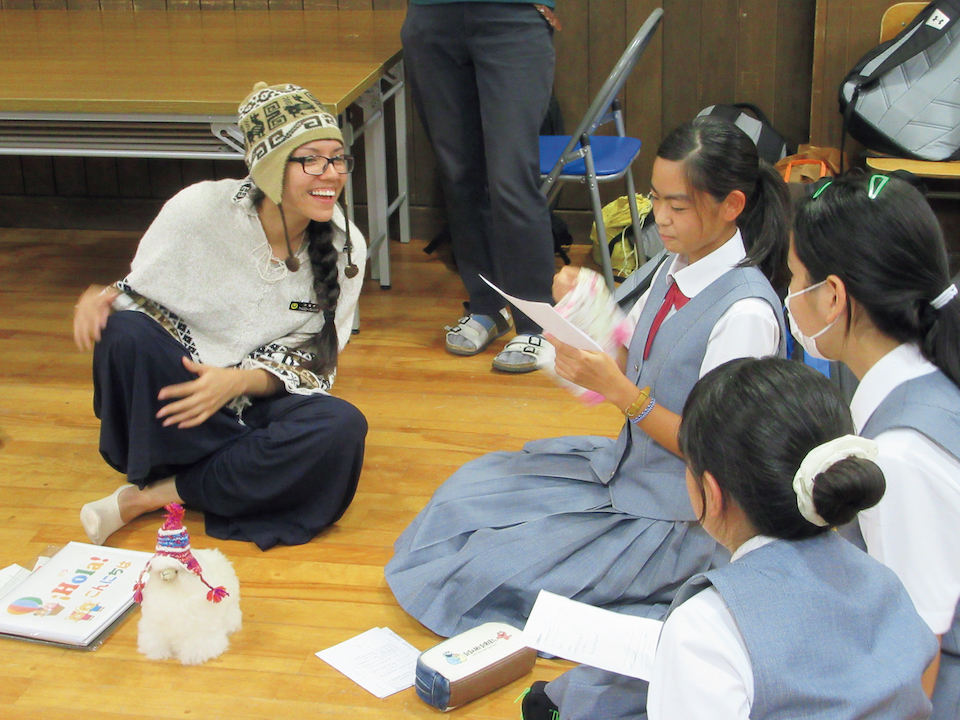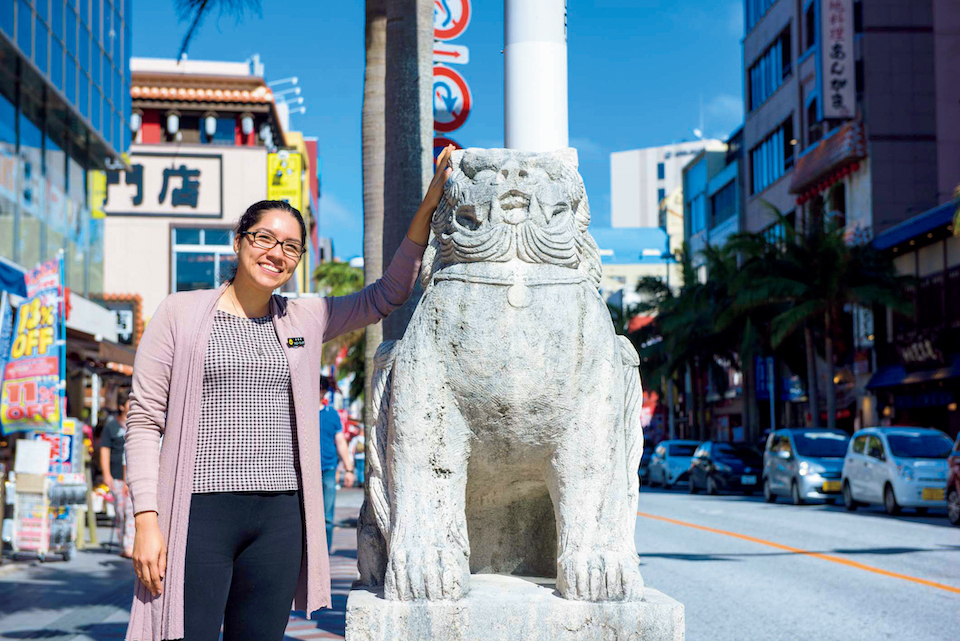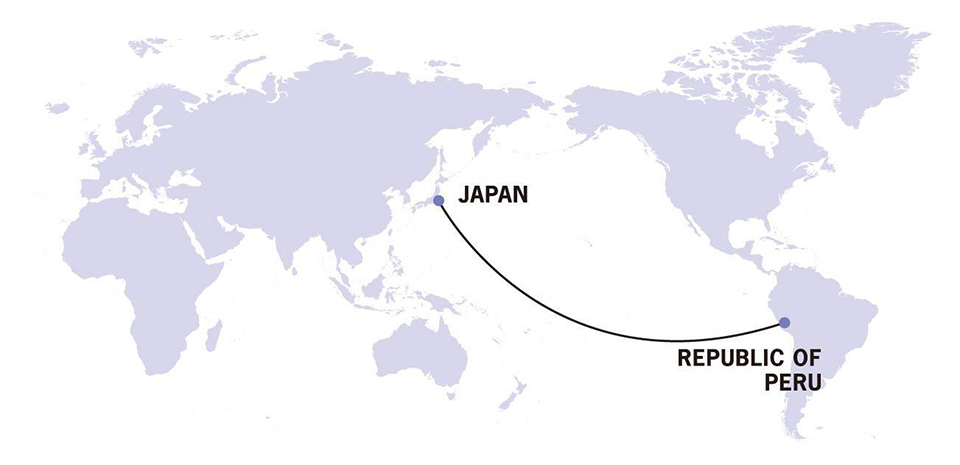Alejandra Falconí Peña, who learned Japanese as an anime lover, feels a connection with her home country of Peru as she works as a CIR in Okinawa

Alejandra Falconí Peña
Graduated in translation and interpreting from the Universidad Femenina del Sagrado Corazón. After graduating, she worked in Peru as a Spanish teacher and also at a translation company. Since April 2017, she has been working as Coordinator for International Relations for the JET Programme at the Department of Culture, Tourism, and Sports, International Exchange Division, of the Okinawa prefectural government.
Alejandra Falconí Peña, who hails from Peru, has been working for the Okinawa prefectural government as a Coordinator for International Relations (CIR) in the Japan Exchange and Teaching (JET) Programme since 2017. Her main work there is to translate documents created by the prefecture and serve as an interpreter when staff go on business trips to South America. She also gives visiting lectures teaching students Spanish and familiarizing them with Peruvian culture, and she also reads out picture books in Spanish at public libraries.
What inspired her to learn Japanese was her encounter with anime. “I like Japanese anime, and I would sing anime songs without understanding their meaning by just imitating the sounds.” Upon seeing this, her father encouraged her to take up Japanese language studies. Ever since Falconí started studying Japanese, she wanted to live in Japan. When she learned about the JET Programme, she applied immediately. “I had been working as a part-time worker until then, so there were many things I did not know about working full time in an office. I had an especially hard time handling calls.”
Upon coming to Okinawa, I learned about the depth of the relationship between Peru and Okinawa. Like in other South American countries, there are many immigrants from Okinawa in Peru. In August 2018, Falconí served as an interpreter at ceremonies in Argentina and Bolivia commemorating the 110th anniversary of the emigration of Okinawans to South America. “Thanks to these immigrants, strong and valuable ties were born between Peru and Okinawa. I was amazed by these relations of friendship that transcend borders and time. I count myself lucky to have been sent to Okinawa.” Falconí says that she feels the connection between Peru and Okinawa on a daily basis, as “people in Okinawa are very warm in how they deal with people. If someone is in need, Okinawans will go out of their way to provide support. I feel that they are similar to Peruvians in this regard.”

In her office at the Okinawa prefectural government office.

She is wearing Peru’s national costume and telling the children about Peruvian culture.

Kokusai Dori, which is just a few steps from the prefectural government office, is crowded with tourists even on weekdays. It is one of Falconí’s favorite places.
The culture of drinking parties is another aspect of life in Japan that made an impression on her. “The custom of getting together at informal drinking parties rather than more formal affairs is great. It allows people to be more relaxed and have fun communicating with one another. This strikes me as a really nice aspect of the culture. But I have heard that Okinawa’s local alcoholic spirits, awamori, is very strong, so I have not worked up the courage yet, but I’d like to try it sometime.” One of her favorite places in Okinawa is Kokusai Dori, the main street of Naha City, where the prefectural office is located. “It even has a specialized anime shop called ‘Animate,’ which to me was a paradise.”
On the other hand, she is keenly aware that her Japanese language skills are still insufficient and she is thinking about going on working in Japan even after completing her JET stint. Ultimately, her goal is to improve her Japanese language skills and become a Spanish teacher in Japan in the future. Falconí Peña says that she would like to also teach about Peruvian culture in addition to the Spanish language. “When I ask Japanese people about their impression of Peru, they often reply ‘it’s far away.’ I have learned that Machu Picchu and the Nazca landmarks are popular among Japanese people, but there are many other sightseeing spots in Peru. I would like for people in Japan to learn about Peru and feel more familiar with it. I want to become a bridge between Peru and Japan.”































